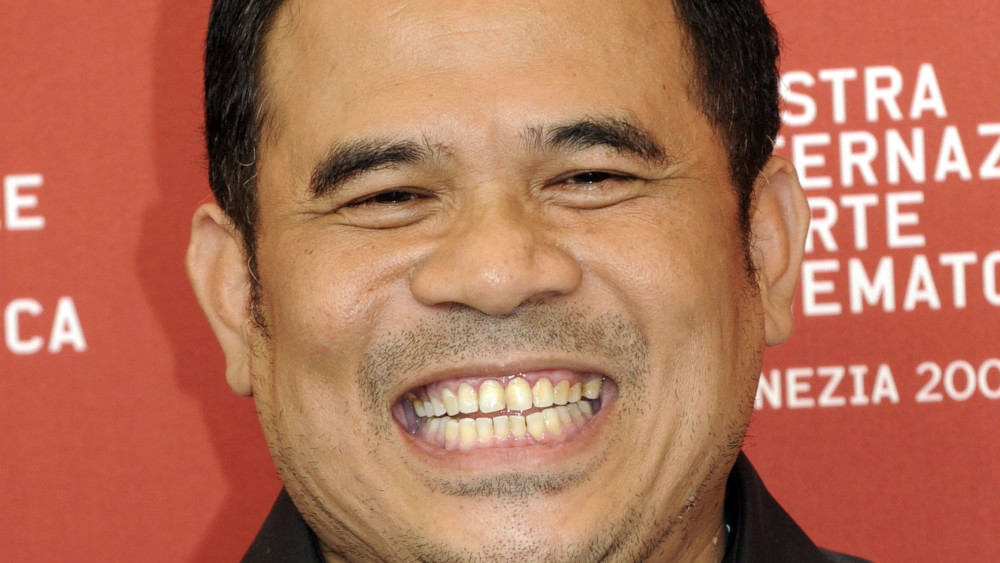Dance Film ‘Memories of My Body’ Takes a Battering From Conservatives in Indonesia
Muslim groups in Indonesia are calling for a ban on the film “Memories of My Body,” a drama from the country’s best-known art house director, Garin Nugroho. The groups say that the film is “sexually deviant” and promotes “LGBT values.”
The film depicts the story of a young man from a dance troupe that performs Lengger Lanang, a folk dance from central Java that is usually performed in pairs, and in which men often take both male and female roles. It is based on the real story of Rianto, a dancer who was abused as a child, explored masculinity and femininity while growing up, and endured traumatic experiences, discrimination and violence. Rianto himself plays the dancer as an adult and narrates the film.
“Memories of My Body” premiered in the Venice Film Festival’s Horizon section, where it won the prize for best film. (It was also nominated for the Queer Lion prize.) Its awards also include the Montgolfiere d’Or Award for best film at the Festival des 3 Continents in France and the Cultural Diversity Award at the Asia Pacific Screen Awards. In partnership with the APSAs, “Memories of My Body” was also screened for UNESCO in Paris, in December.
But it has encountered problems at home in Indonesia following its release on April 18. After being given a 17+ rating by the censorship board (LSF), the film was given a 40-screen outing by producer Fourcolours Films. Indonesia has very few independent distributors, meaning that producers of local movies usually increase their risk by doubling up as releasing agent.
In less than a week, the film was banned by local officials in regions including Depok and Palembang. Others called on the powerful assembly of Muslim elders known as the Indonesian Ulema Council to move against the film. Arovah Windiani, a spokeswoman for the council, was quoted in local media as saying that, from a moral perspective, the film “should not be out there.” Others said they had appealed to the Indonesian Broadcasting Commission (KPI), which regulates the TV industry but has no authority over theatrical film releases.
While national-level authorities have been slow to move, a backlash against the film was fanned by social media, although few people have seen the film. An online petition calling for “Memories of My Body” to be banned has amassed 160,000 signatures – 10 times the number of admissions the film has achieved. Nugroho has also been hounded online and denounced as a “danger to young people.”
On Monday, the Muslim elders’ council demanded that the censorship board change the film’s certification to 21+, and recommended that Nugroho re-edit the film to make its meaning less ambiguous. Nugroho has refused to revise the film and told Variety that he opposes “mob justice.” He has hosted public discussions about his film at art centers around the country.
With screenings banned in five provinces, the film is now playing on just three screens across the world’s fourth most populous nation.
The Indonesian Film Directors Committee has issued a statement supporting Nugroho and citing nine other instances where religious opposition stirred up online has had an impact on Indonesian films. The organization said that such pressure runs counter to the government’s education program, and suggested that officials and public view films before acting against them.
Ironically, it’s possible that Lengger Lanang, the dance form, may have been misunderstood. Its name is believed to be a contraction of the phrase “elinga ngger,” which is local-language advice to be aware or remember. It has previously been interpreted as a moral message to remember God, and do good deeds for others. Other sources say that historically Lengger was actually used to promote Islam in Indonesia.
That interpretation does not sit well in the current climate in Indonesia. Last month’s presidential and general elections were fought largely on religious lines, with candidates eagerly appealing to the most conservative Muslim viewpoints.
“This is Indonesia’s dilemma today,” producer Ifa Isfansyah told Variety. “Indonesia is split between Sufi and Wahhabi [strains of Islam. According to] Wahhabi, everything must follow Arab culture, rejecting the majority Indonesian traditions and Hindu and Buddhist art and dance influences, which are also our local traditions.”
Local media reported violence on Wednesday as students and dancers in Pontianak clashed with organizations such as Laskar Pemuda Melayu (Malay Army Warriors) during International Dance Day celebrations.
 CREDIT: COURTESY OF RIAU PROVINCE
CREDIT: COURTESY OF RIAU PROVINCE
HEADER CREDIT: MARIA LAURA ANTONELLI/REX/SHUTTERSTOCK
This article is first published here.

